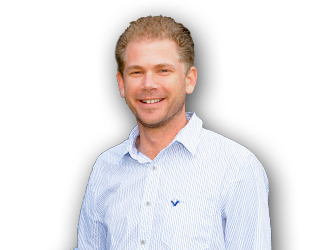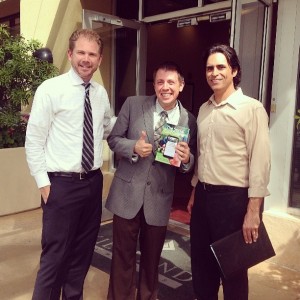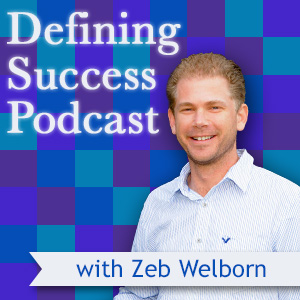Podcast: Play in new window | Download
 Sushant Misra is the owner of Trep Talks, and he and I are in a mastermind together. He actually interviewed me on his show about six months ago. He’s a really bright guy, has a great advice. One thing that he brought up, which I have found to be true with the interviews I’ve done with people for The Defining Success Podcast, is that there is no big secret to success. It’s a great episode, I hope you all enjoy!
Sushant Misra is the owner of Trep Talks, and he and I are in a mastermind together. He actually interviewed me on his show about six months ago. He’s a really bright guy, has a great advice. One thing that he brought up, which I have found to be true with the interviews I’ve done with people for The Defining Success Podcast, is that there is no big secret to success. It’s a great episode, I hope you all enjoy!
Sushant Misra is the host of Trep Talks, a web-based interview show where he interviews some of the most successful digital entrepreneurs on the internet. These entrepreneurs share their stories as well as a few “secrets” – i.e. mindsets, strategies and tactics that worked really well for them in starting and growing their own online businesses. He is also the owner of yogamatstore.com.
Zeb’s Take – There is No Secret to Success
It was a lot of fun for me talking with Sushant. He and I have a conversation every week and talk about our businesses and talk about ways to improve our businesses. It’s always been a good learning experience for me and everyone else that comes and participates in that mastermind group that we’re involved in. He gave so much practical advice, and a lot of great philosophical stuff too. One of the things he said that he learned from doing his Trep Talks show, the video show on his podcast, is that there is no big secret to success.
I think when I started the Defining Success Podcast I was kind of looking for that too. I think a lot of people when they think about using social media or using the internet they think it’s kind of like a gold mine maybe, or that you just jump in and you can make money off of it. But that is absolutely not the case. It takes a lot of hard work, dedication and commitment. So maybe the secret to success is that you need to work hard, you need to be committed, you need to persevere, you need to have all those different tools in place.
I remember being approached by a friend of mine. He had, it was called, The Leather Traveller, he would sell leather goods online. I guess it was a franchise or something. He put up a website to sell his leather goods. He thought, “I’m just going to put this website up there, I’m going to sell other people’s goods, and I’m going to make money. It’s that easy.”
What he came to realize was that he had to find out how to drive traffic to his website, had to make sure his website functioned properly, he had to make sure visitors to the website can find what they want and purchase the leather goods. He just didn’t have that level of commitment and interest to go in there and dive in there and make it happen. He kept telling me about all these dreams he had to use the internet to make money, but he would never do the hard work that was necessary to do that. (If he’s listening, I apologize for bringing that up. I know he’s really active and excited about the work he’s doing now.) I will say that from all the people I’ve interviewed on The Defining Success Podcast is that there is no secret to success. The secret to success is that hard work, perseverance, getting that stuff done, and doing it in a smart efficient way.
Such a great time talking with Sushant today, a lot of great advice in the interview. Adam, Scott, Jolene, Herby, Sushant: thank you all for being a part of that mastermind group.
Go out there and find your success!
Find out more about Sushant Misra and Trep Talks
 Go to TrepTalks.com
Go to TrepTalks.com
Trep is short for the word Entrepreneur. It’s a great place for people that are interested in learning about online marketing or online entrepreneurship. Sushant is taking this project in a new direction. He’s working to create a lot of great educational content with really successful people teaching you directly.
Quotes
- “Entrepreneurship is a process.”
- “You have to find an idea that is at the intersection of the skills that you have, your own interests and passions, and something that can be monetized. If you have an idea that matches those three criteria, you have an idea that you have a good shot at pursuing.”
- “Every person has something from their own experiences, from their own knowledge, that they can share with the world.”
- “I really try to learn from every single guest. In the hopes that by coming from that place of curiosity, I will be able to create content that will be helpful to other people as well.”
- “One of the big things that I’ve learned is that there is no big secret.”
- “As an entrepreneur, if you have a small vision or a mediocre vision, you’re going to spend the same amount of time and effort in trying to get that off the ground as you are going to do with a big vision. It’s much better to try to achieve something bigger.”
- “What really matters is choosing the right idea, the idea that is right for you, and just executing properly and consistently over the long term.”
- “Business is really about people. You have to be comfortable talking to people, networking with people, and helping people.”
- “People are very friendly, people are helpful. If you ask them for a meeting or some help, a lot of times they say yes.”
- “You have to become comfortable making mistakes, learning from them, and not get discouraged from making mistakes. Once you can do that it really helps you take your entrepreneurial journey to the next level. At that point you really start learning at a rapid pace. You’re not getting discouraged by mistakes and you consider that as part of the process.”


More from the Interview
Sushant had Zeb on his show, Trep Talks, about 6 months ago. He was the first to turn the tables on Zeb and make him an interviewee on a podcast. Zeb had a great experience on Trep Talks and is excited to now have Sushant on The Defining Success Podcast. Zeb and Sushant are part of the same mastermind group.
In 2010, Sushant finished his master’s degree in Health Administration mainly because his parents wanted him to be a doctor, but he wanted to learn about business. He had realized that he was very entrepreneurial. After graduation he had the decision to take the safe life, get a typical 9-to-5 type job, or to really pursue his passion. He took a leap of faith.
“Entrepreneurship involves a lot of uncertainty.”
He didn’t know much about online marketing or online entrepreneurship, but from the little he did know and from his experiences visiting wesites, he knew the internet would continue to grow. He taught himself and created his own online ecommerce store called yogamatstore.com where he sold yoga products. He did that for a few years, but he wanted his own products and lacked the investment to be able to do that. He had to go back in the industry and work for some bigger ecommerce businesses and gain more experience.
Then he found a product that did not require a lot of upfront investment, he started Trep Talks. On Trep Talks he interviews a lot of knowledgeable people in the online world and put out those interviews. Now Sushant is at a point where he wants to take that project and make it something bigger.
Entrepreneurship is a process.
Sushant says there are two kinds of people who become entrepreneurs. One kind is an accidental entrepreneurship, these are people who have worked in the corporate world for 15 – 30 years, they have an acquired set of skills, they know a lot about a certain industry. Now with all that skill and knowledge about an industry they identify an opportunity and start a business. Often they have some capital investment, partners, and things like that.
The other kind of entrepreneur, which Sushant falls into, is someone who has an entrepreneurial personality. It’s innate to them. “For me, entrepreneurship is a process. I realize that it’s something that you do, you learn through the process, then you start something again.”
YogaMatStore is a learning process for Sushant about entrepreneurship, about his own personality, about the online world. He has taken that experience and brought it with him and to new level with Trep Talks.
He hopes to create something that is useful and valuable for people in the world, and that creates a better life for people around the world.
To feed his entrepreneurial personality he says you have to find a sweet spot, “My definition of a sweet spot is you have to find an idea that is at the intersection of the skills that you have, your own interests and passions, and something that can be monetized. If you have an idea that matches those three criteria, I think, you have an idea that you have a good shot at pursuing.”
Entrepreneurship is so difficult that if you are not truly interested or passionate about it, it’s not really something that everyone should pursue.
He says, I realized that I had a passion in learning about the online world. I started approaching people, I approached you, I really started talking to people about how the online world works. I started putting videos on the website just thinking that there are other people out there just like me who want to learn more about online marketing, online entrepreneurship, how to start a business, how to find clients online, and I received a great response from people on different social media sites and people emailing me with great feedback.
It was really a project for me to learn more about online marketing because I was really passionate about it. But, it seemed that it’s something that other people are also interested in learning about. I want to take it and turn it into a big business and really take this idea and take it further.
Fun Fact: Sushant had never used Facebook before 2013.
He realized that he should remedy that, so he created a set of interviews where he interviewed a lot of great Facebook marketing experts. He dug deep and asked them questions from the perspective of a beginner trying to learn how to leverage Facebook marketing, how to leverage Facebook advertising, to find your clients online, to really generate revenue for your business.
Sushant has interviewed 60 to 65 people for Trep Talks. He says it’s already been a great journey. He is appreciative especially of the people who gave him their time and knowledge in the very beginning and who believed in him.
He says one of his best interviews was the one with Zeb, but there are several good ones.
“Every person has something from their own experiences, from their own knowledge, that they can share with the world.”
One of his first interviews was with Tim Ferriss, a very well known online marketer, and it was done in person, an experience Sushant will never forget. Another one was with a blogger named Michelle Shaeffer, she was one of those first people who believed in him. She introduced him to a lot of other people that he was able to interview on Trep Talks.
“I always come from a place of curiosity and learning. I really try to learn from every single guest. In the hopes that by coming from that place of curiosity, I would be able to create content that will be helpful to other people as well.”
“One of the big things that I’ve learned is that there is no big secret.”
“I had this secret hope that they would share something, you know this secret formula, that made them successful, or that made them wealthy. And what I realized was there wasn’t really a big secret, a lot of it was really just perseverance and hard work and having a big vision.”
“As an entrepreneur, if you have a small vision or a mediocre vision, you’re going to spend the same amount of time and effort in trying to get that off the ground as you are going to do with a big vision. It’s much better to try to achieve something bigger rather than smaller.”
He says there is no shortage of ideas or talent. “What really matters is choosing the right idea, the idea that is right for you, and just executing properly and consistently over the long term.”
Advice: Find a big vision. Start. Learn. Refine your idea. After that it’s just about pure perseverance and just not giving up.
He says, 6 or 7 months ago when he started this project, networking and meeting new people was a big challenge for him. One of his mentors pushed him to start networking when he had to go back to working at a bigger business. Sushant had an a-ha moment. Business is really about people. You have to be comfortable talking to people, networking with people, and helping people.
“I could have never, in my wildest dreams, could have imagined that I would met so many wonderful people and have this opportunity to learn from them. It has been a wild ride. For me, it’s really something out of a dream.”
“People are very friendly, people are helpful. If you ask them for a meeting or some help, a lot of times they say yes.”
“You have to become comfortable making mistakes, learning from them, and not get discouraged from making mistakes. Once you can do that it really helps you take your entrepreneurial journey to the next level. At that point you really start learning at a rapid pace. You’re not getting discouraged by mistakes and you consider that as part of the process.”
Example
Sushant was doing Trep Talks as a full time job. At one point he wasn’t getting the revenue he needed, his savings was running out and it took him to a dark place. He clearly remembers thinking, in this dark place, this is where I should start looking for opportunities. A couple weeks later he ran across a funding opportunity from the government in Ontario, Canada. They help new and young business owners with funding and training and things like that. He applied for that opportunity, it took some time, but he finally was very fortunate to receive that and now is able to pursue his dream and take his idea to the next level. He had to stop and tell himself, “this is a dark place, I really need to look for an opportunity” and he found it.
Sushant has been in Canada for about a decade, before that he lived in India. He says he was raised in a very safe environment. He was very comfortable, he never wanted to take a risk. He cared too much about what everyone else thought about him. When he went to Canada, he kinda took that as an opportunity to try a lot of new different things, because he thought, “who cares, no one here knows me.” He wonders what if he would have felt that way sooner at a younger age.

























 Dr. Nick Morgan was an academic. He taught Shakespeare and public speaking. He trained as an actor, did that for a while. Had some children he had to take care of, so he had to get a paying job. He worked briefly as a speechwriter for a governor. Then he entered the business world via consulting and then started his own business.
Dr. Nick Morgan was an academic. He taught Shakespeare and public speaking. He trained as an actor, did that for a while. Had some children he had to take care of, so he had to get a paying job. He worked briefly as a speechwriter for a governor. Then he entered the business world via consulting and then started his own business. Nick has a new book, Power Cues, in which he shares some personal stories some reasons why he cares so much about body language and speaking. “That’s about being authentic and getting my voice out there.” The book also discusses the relationship between neuroscience and how communication actually works. “It’s a big step for me.”
Nick has a new book, Power Cues, in which he shares some personal stories some reasons why he cares so much about body language and speaking. “That’s about being authentic and getting my voice out there.” The book also discusses the relationship between neuroscience and how communication actually works. “It’s a big step for me.”


 Sushant Misra is the owner of Trep Talks, and he and I are in a mastermind together. He actually interviewed me on his show about six months ago. He’s a really bright guy, has a great advice. One thing that he brought up, which I have found to be true with the interviews I’ve done with people for The Defining Success Podcast, is that there is no big secret to success. It’s a great episode, I hope you all enjoy!
Sushant Misra is the owner of Trep Talks, and he and I are in a mastermind together. He actually interviewed me on his show about six months ago. He’s a really bright guy, has a great advice. One thing that he brought up, which I have found to be true with the interviews I’ve done with people for The Defining Success Podcast, is that there is no big secret to success. It’s a great episode, I hope you all enjoy!


 This episode I interview the Mingling Maven, Susan RoAne. She is the author of How to Work a Room. In the interview she gives great ideas on having conversations with people, how to start those conversations, and how to feel comfortable in those scenarios. One of the things she highlighted was the difference between working a room and networking. The real key to networking is in the follow-up.
This episode I interview the Mingling Maven, Susan RoAne. She is the author of How to Work a Room. In the interview she gives great ideas on having conversations with people, how to start those conversations, and how to feel comfortable in those scenarios. One of the things she highlighted was the difference between working a room and networking. The real key to networking is in the follow-up.


















